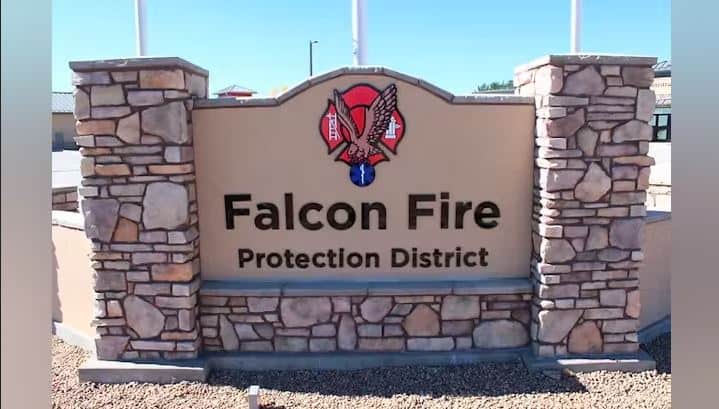In June, Falcon firefighters responded to several emergency medical calls involving serious heat-related illnesses. These kinds of emergencies go beyond just being a little too warm or thirsty ñ- they can be life-threatening.Fortunately, heat exhaustion and the more severe heat stroke can usually be prevented. Staying hydrated and being mindful of outdoor activities go a long way toward staying healthy when temperatures rise. The Centers for Disease Control and Prevention and the Mayo Clinic offer these tips to prevent heat-related illnesses:
- Stay well-hydrated. Drinking fluids helps the body sweat and regulate its temperature but avoid alcohol and sugary drinks.
- Stay indoors and in air-conditioned spaces when possible.
- Fans are good for circulating air but not for cooling off. Instead, take a cool shower or bath, or move to an air-conditioned place.Wear lightweight, light-colored, loose-fitting clothing. A looser fit allows the body to cool properly.
- NEVER leave people or pets in parked vehicles, even if the windows are open.
- Limit outdoor activity to morning and evening hours when possible.
- Cut down on exercise and drink two to four glasses of cool, nonalcoholic fluids each hour during physical activities.
- Rest frequently in shady areas.Sunburn affects the bodyís ability to cool itself, so wear a wide-brimmed hat, sunglasses and apply sunscreen of SPF 15 or higher. Reapply sunscreen every two hours, or more often if sweating or swimming.
- Heavy sweating
- Weakness
- Cold, pale and clammy skin
- Fast, weak pulse
- Nausea or vomiting
- Fainting or dizziness
- Headache
- Move to a cooler location.
- Lie down and loosen clothing.
- Apply cool, wet cloths to as much of the body as possible.
- Sip water.
- If vomiting occurs and persists, immediately seek medical attention.
- High body temperature (above 104∞F)
- Altered mental state or behavior
- Hot, red, dry skin
- Rapid pulse and breathing
- Throbbing headache
- Possible unconsciousness
- Call 911 immediately ó†this is a medical emergency.
- Move the person to a cooler environment.
- Remove excess clothing.
- Cool the person with any means available (cool water; apply cold wet towels; place ice packs on the personís head, neck, groin and armpits).
- Do†NOT†give the person fluids.





